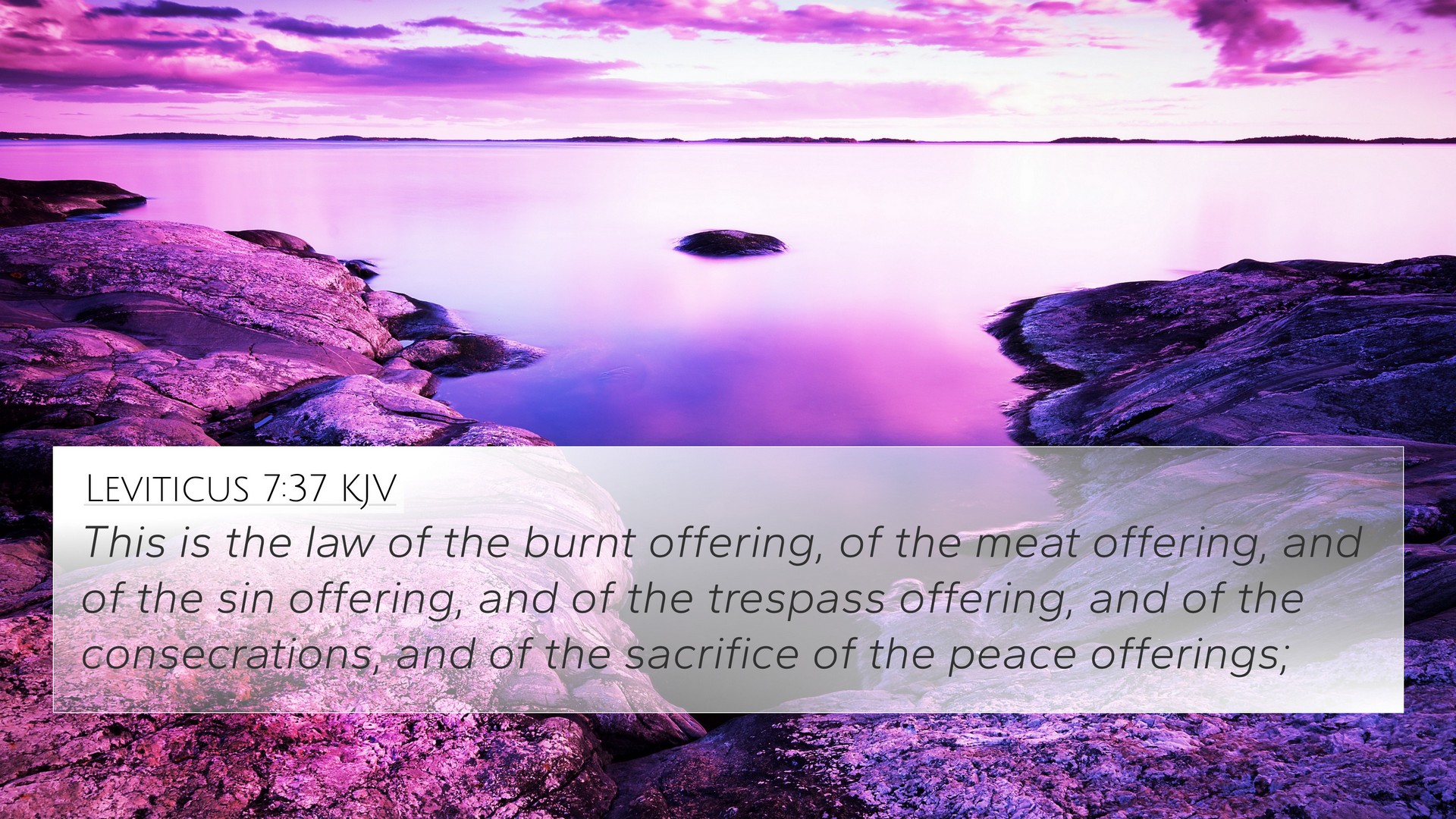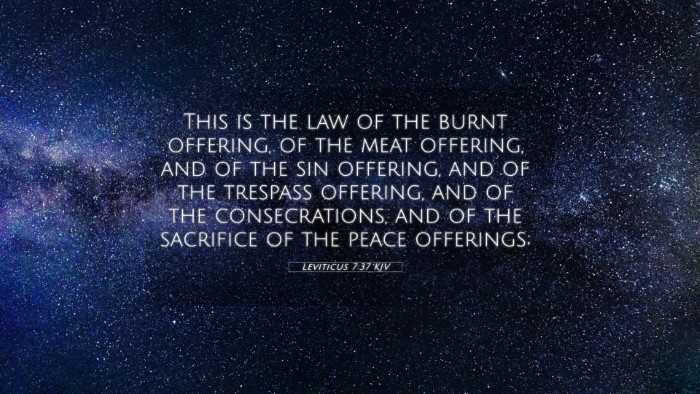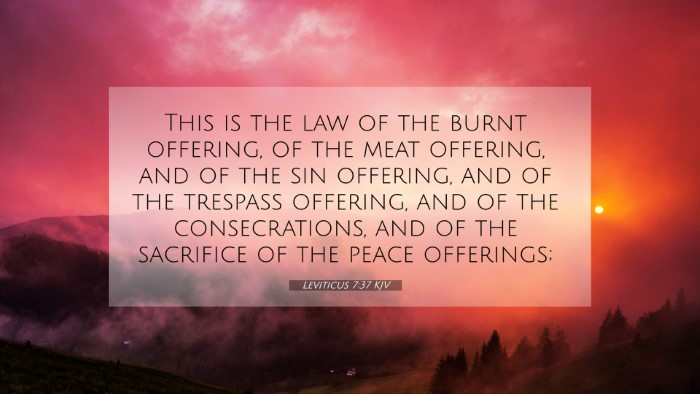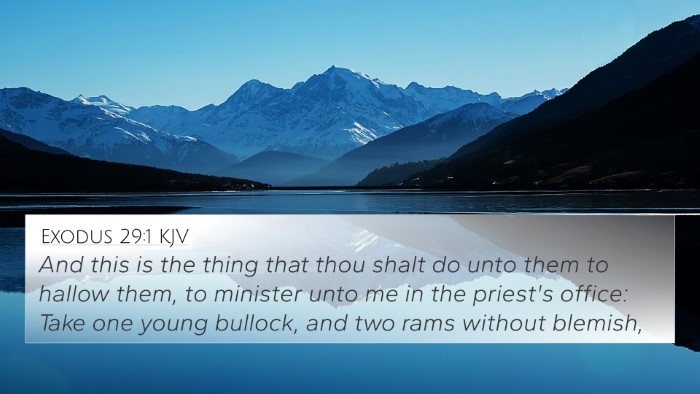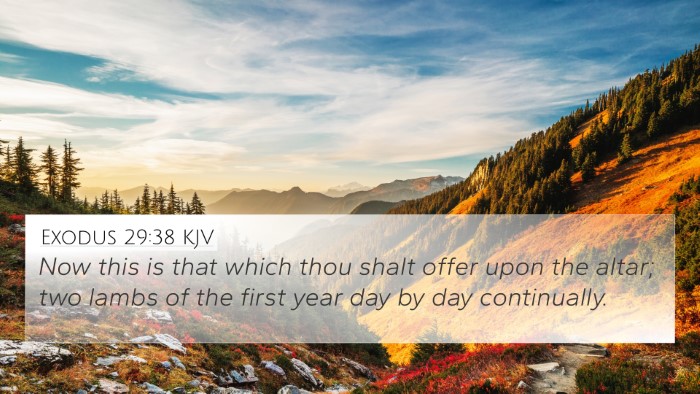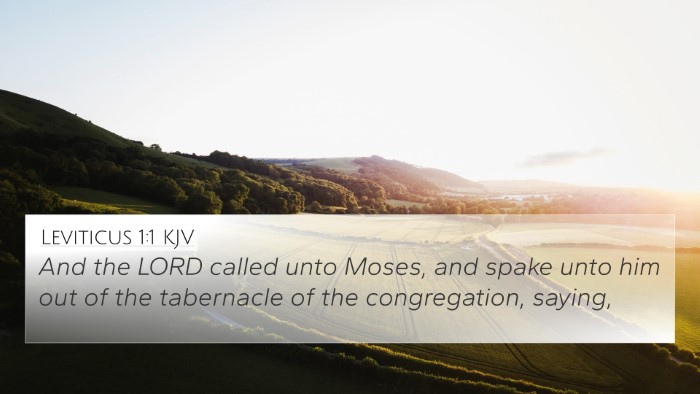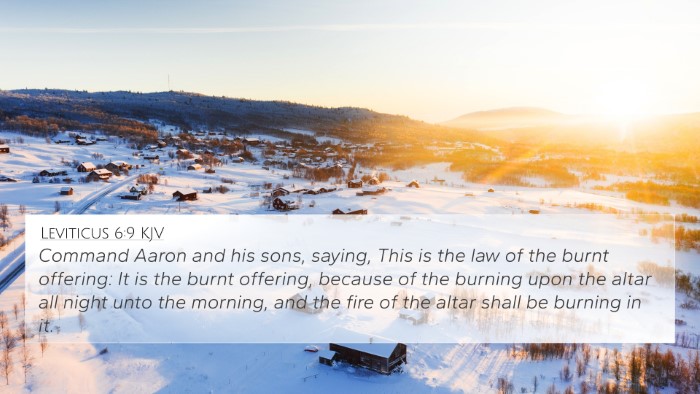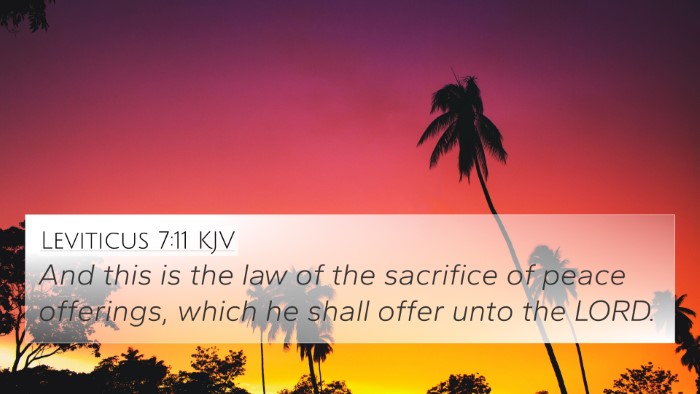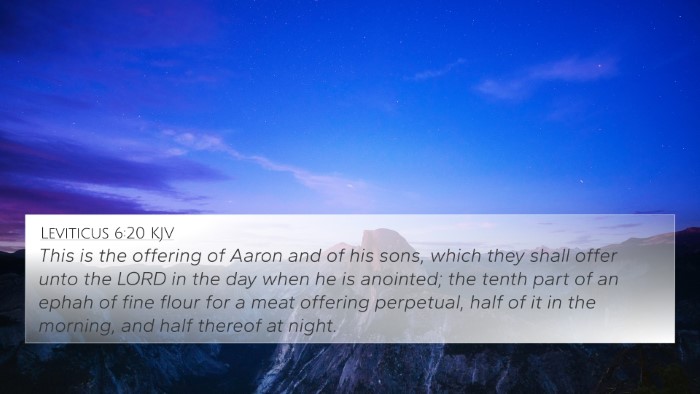Understanding Leviticus 7:37
Leviticus 7:37 states:
"This is the law of the burnt offering, of the meat offering, and of the sin offering, and of the trespass offering, and of the consecrations, and of the sacrifice of the peace offerings." (Leviticus 7:37, KJV)
Summary of Biblical Meaning
The verse encapsulates the comprehensive law regarding various offerings prescribed to the children of Israel. These offerings are crucial for maintaining a right relationship with God, as they embody principles of repentance, gratitude, and atonement.
Thematic Connections
This verse serves as a linking point between various themes in the Bible related to offerings and sacrifices. The different offerings mentioned connect the worship experience of the Israelite people to God’s expectations surrounding holiness and communal worship.
Bible Verse Cross-References
- Exodus 29:18 - This verse discusses the burnt offering, underscoring its role in consecration.
- Leviticus 1:3-17 - Further elaborates on the specifications for burnt offerings and the importance of the sacrifice.
- Hebrews 10:1-4 - Illustrates the shift from the old sacrificial system to the final sacrifice of Christ.
- Romans 12:1 - Calls believers to present their bodies as living sacrifices, paralleling the significance of offerings.
- Colossians 1:20 - Discusses reconciliation through Christ’s sacrifice, linking the Old Testament offerings with New Testament fulfillment.
- Leviticus 3:1-17 - Details the peace offerings that reflect communal and individual thanksgiving to God.
- Psalm 51:17 - Indicates that God desires a contrite heart rather than mere external offerings.
- Matthew 5:23-24 - Teaches about the importance of relationships in worship, showing that offerings must be approached with a pure heart.
- 1 Peter 2:5 - Describes believers as living stones and a holy priesthood, echoing the sacrificial theme in Leviticus.
- Isaiah 53:5 - Points to the suffering servant, offering a new understanding of sacrifice in light of redemption.
Insights from Public Domain Commentaries
Matthew Henry emphasizes that these laws establish God's order for worship, revealing the necessary procedures and attitudes when approaching Him. Each offering symbolizes various aspects of relationship and dedication to God.
Albert Barnes illustrates that the variety of offerings shows the different spiritual needs of Israel, from atonement to praise. Barnes notes how these rituals pointed forward to the ultimate sacrifice of Christ, fulfilling the requirements of the law.
Adam Clarke summarizes that these laws indicated the seriousness with which God views worship. Clarke highlights that the offerings not only dealt with sin but also with gratitude and worship, reflecting a deeper relationship between God and His people.
Inter-Biblical Dialogue
The dialogue between Old and New Testament teachings illustrates that while the ceremonial laws set forth in Leviticus were specific for Israel, their implications and meanings continue to resonate within the Christian faith. The offerings foreshadow the perfect sacrifice of Jesus, blending the connection between the law and grace.
Practical Applications
Believers today can apply the lessons from Leviticus 7:37 by understanding the significance of worship and sacrifice in their spiritual lives. Offering oneself to God through acts of service, love, and thankfulness fulfills the spiritual essence of the offerings outlined.
Tools for Bible Cross-Referencing
Utilizing Bible concordance, cross-reference guides, and Bible reference resources can enhance the understanding of themes throughout the scriptures. To effectively engage in cross-reference Bible study, one should identify key verses connected thematically or contextually, enriching biblical knowledge and application.
Conclusion
In summary, Leviticus 7:37 serves as a significant verse linking various sacrificial laws that underscore the importance of worship in Israel's covenant with God. It reveals deeper Scriptural connections and invites further exploration into the relationship between the Old Testament sacrificial system and New Testament teachings.
